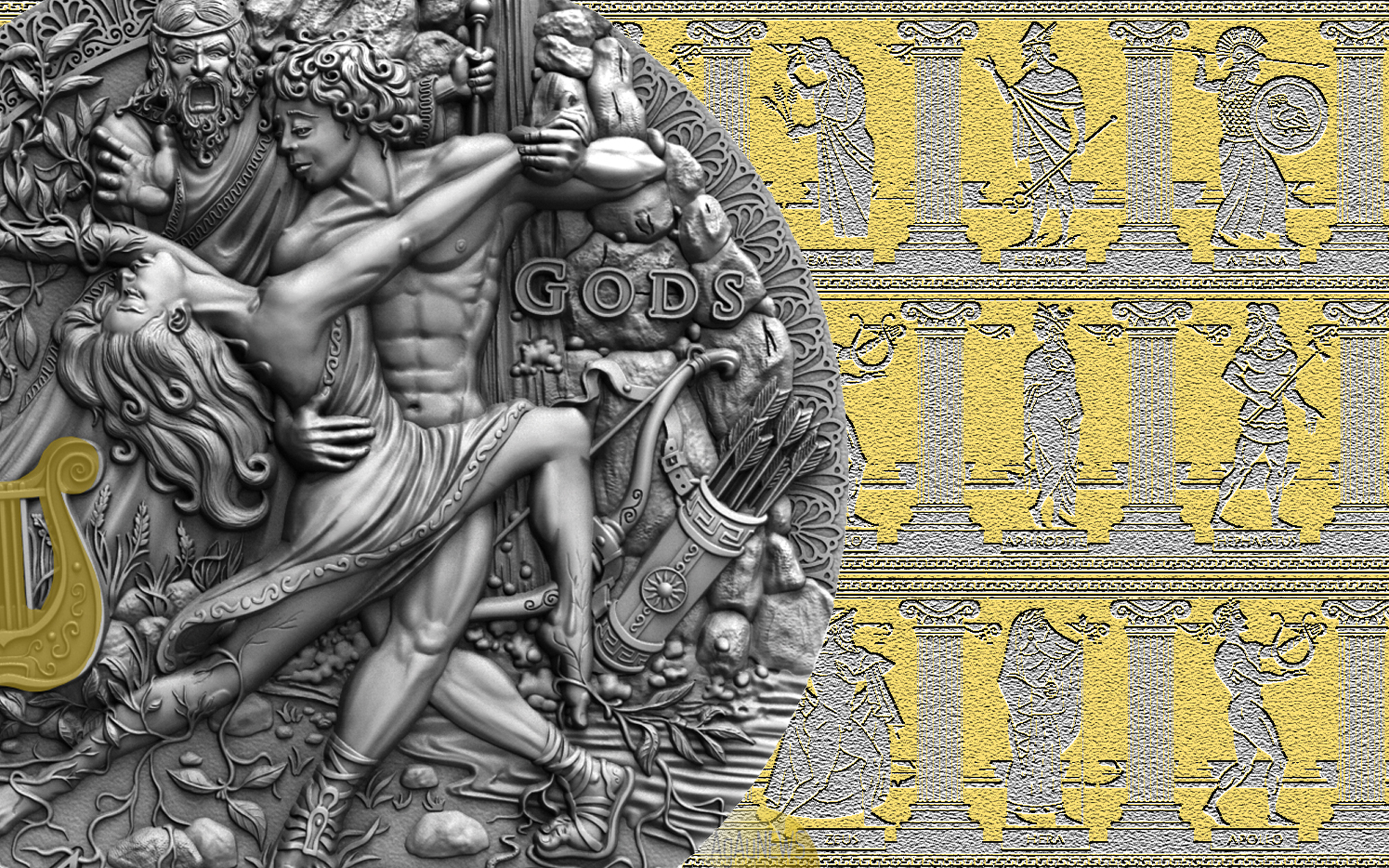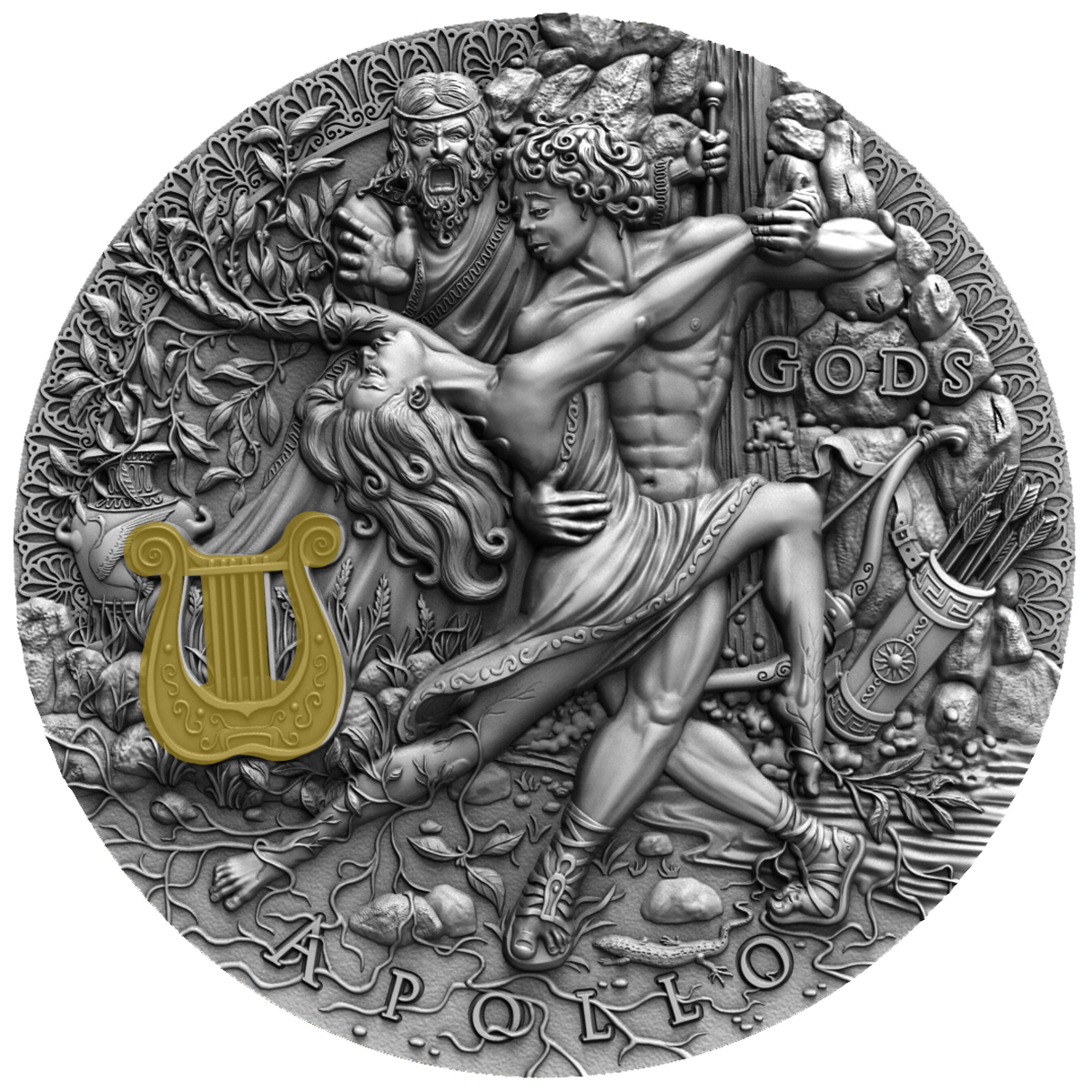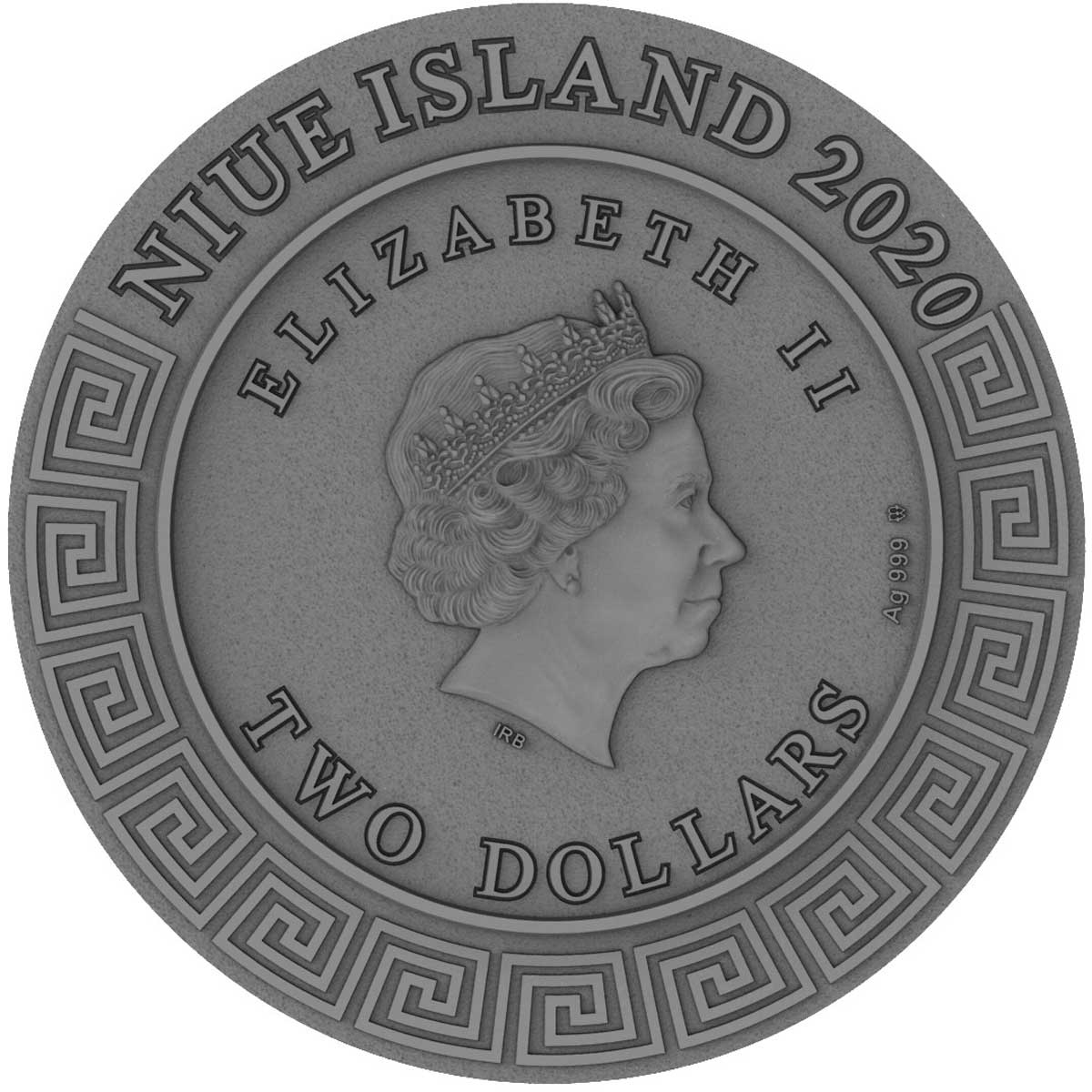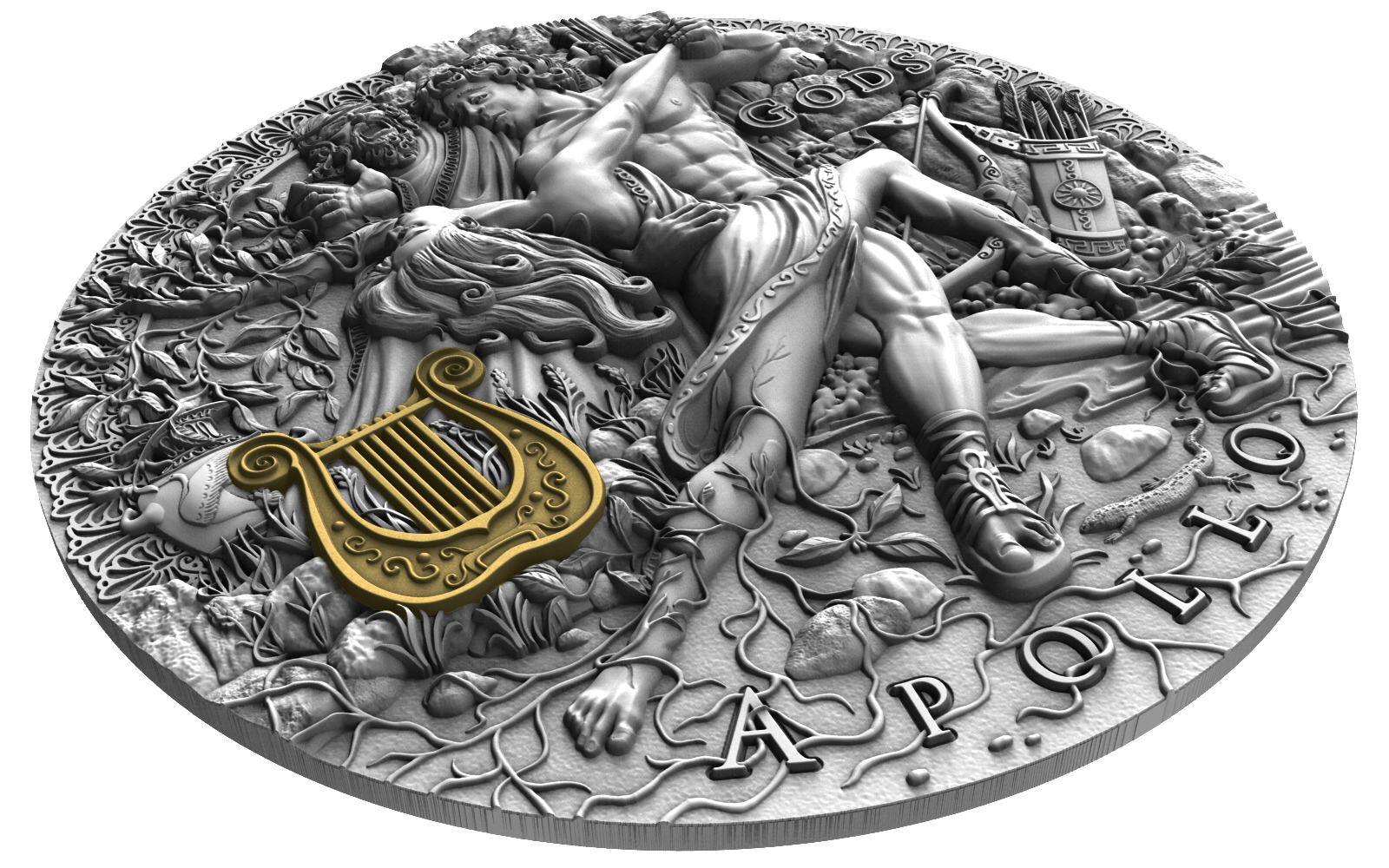Following Ares, Poseidon, & Hephaestus coins, Numiartis showcases the protector against epidemics, Apollo
It’s arguably the superb Ares coin back in 2017 that first drew attention to the Mint of Poland’s abilities in this genre, but it’s fair to say they’ve proved time and again it wasn’t a one off. Ares was the first in Numiartis’ ‘Gods’ series, and was followed by the equally impressive Poseidon and Hephaestus. The fourth coin is now upon us, and ironically, given what’s going on, is the Greek god known as both the bringer of, and protector against, plagues and epidemics.
Probably the most loved of the Greek pantheon, Apollo has become well known in popular culture, no doubt aided by giving his name to the groundbreaking NASA space programme that led to the first landing on the Moon of a human being. It’s a great choice for a coin, as there are surprising few references to him in modern numismatics given his stature in mythology.
It’s another beautifully intricate piece, quite literally covered from edge to edge in fine, high-relief detail. The scene is of Apollo serenading a beautiful woman, with what is likely her husband or protector in the background. Apollo had a reputation as a top level shagger in Ancient Greek mythology, so tracking down which of his many conquests eluded me. The gilded element this time out is a lyre, so closely attributed to the god.
Suffice to say, this is another excellent piece, in what is one of the very best of these series. No changes to the format, with the usual two ounces of silver, antique finished and rimless, and the coin is boxed with a certificate. Mintage is capped to 500 pieces and it will be available in June and up for pre order any time now. Obviously, with the current upheaval in the world, all dates are subject to change.
APOLLO
Apollo was a major Greek god who was associated with the bow, music, and divination. The epitome of youth and beauty, source of life and healing, patron of the civilized arts, and as bright and powerful as the sun itself, Apollo was, arguably, the most loved of all the Greek gods. He was particularly worshipped at Delphi and Delos, amongst the most famous of all religious sanctuaries in the Greek world.
Son of Zeus and Leto, and the twin brother of Artemis, Apollo was born on the island of Delos. His mother, fearful of revenge from Zeus’ wife Hera, had chosen barren Delos as the safest retreat she could find. At his first taste of ambrosia, he was said to have immediately transformed from babe to man. Apollo was then given his bow, made by the master craftsman of Mount Olympus, Hephaestus.
Apollo is a significant protagonist in Homer’s account of the Trojan War in the Iliad. On the side of the Trojans, he gives particular assistance to the Trojan heroes Hector, Aeneas, and Glaukos, saving their lives on more than one occasion with his divine intervention. He brought plague to the Achaeans, led the entire Trojan army (holding Zeus’ fearsome aegis) in an attack which destroyed the Achaean defensive walls, and was also responsible for guiding Paris’ arrow to the heel of Achilles, killing the seemingly invincible Greek hero. Apollo is most frequently described by Homer and Hesiod as the ‘far-shooter’, the ‘far-worker’, the ‘rouser of armies’, and ‘Phoebus Apollo’.
Cartwright, M. (2019, July 25). Apollo. Ancient History Encyclopedia. Retrieved from https://www.ancient.eu/apollo/
| SPECIFICATION | |
| DENOMINATION | $2 New Zealand (Niue) |
| COMPOSITION | 0.999 silver |
| WEIGHT | 62.2 grams |
| DIMENSIONS | 45.0 mm |
| FINISH | Antique |
| MODIFICATIONS | High-relief, Partial Gilding |
| MINTAGE | 500 |
| BOX / C.O.A. | Yes / Yes |






Another great piece in a top-notch series. But it feels like a change in the style from the first three. Or is it just my imagination?
Possibly. I had a look on our guide with the four next to each other and I think there are plenty of similarities with the Poseidon issue in particular.
How are things there, Harry? Everyone okay?
All okay so far Mik. Strange times indeed. I thought this was only the stuff of movies. Stay well; stay healthy& keep AGAUNEWS up & running. I look forward to your posts & really enjoy reading your news & comments, especially now.
Greetings, is there a way to know the upcoming releases or the schedule? Thanks
Not exactly, but the series is a single coin annually, and they try to get a prototype ready for the Berlin World Money Fair in early February. Most producers don’t like to reveal subjects until close to release time because of the intense competition.